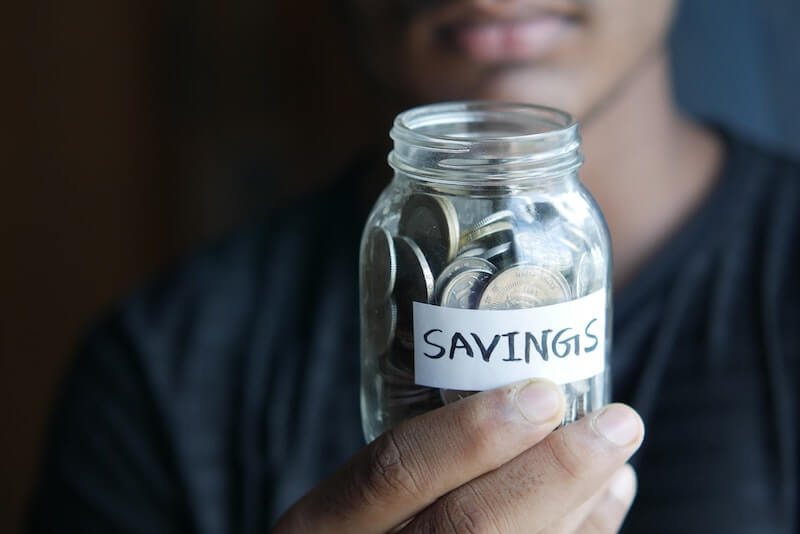I recently browsed some Reddit communities, called subreddit for those who don’t know, and I happen to stumble on this question from one of the users? Name a reason someone might apply for a loan? While you might think this is a simple question to answer, let’s examine it from all perspectives and try to name the most reasons, with the reasoning behind each item.
Loans are handy when you are in dire need of cash. At some point in time, we all can relate to such requirements while facing unprecedented incidents.
When you face emergencies, need to buy a vehicle, or have to pay for educational expenses, you turn to lenders seeking loans.
There are several types of loans that you can apply for, such as personal loans, educational loans, business loans, home loans, etc. But, none can be more lucrative than a personal loan.
So, while it is hard to name a reason someone might apply for a loan, here are a few that we can think of.
But, before we start, let us know what a personal loan is and how it works.
Quick Navigation
Name a Reason Someone Might Apply for A Loan:
- Debt Consolidation
- Moving Costs
- Home Renovations
- Education Costs
- Medical Bills
- Vehicle Financing
- Vacation Costs
- Emergency
- Wedding
What Is A Personal Loan and How It Works

A personal loan is a type of loan which you borrow to pay your various expenses. The reason behind “personal” is that no one asks you where you are spending your money.
You can use it for debt consolidation, buying vehicles, paying medical bills, or planning the dream destination wedding.
There are a lot of credit unions, banks, and online lenders who offer your personal loans. The biggest perk of a personal loan is that they usually have a favourable repayment term with lower interest rates. However, it is very much subjective to your financial history, i.e. credit report and credit score.
So, how does a personal loan work?
When you apply for a personal loan and get approved, the amount can get credited from within 24 hours to two to three weeks. As soon as you receive the money in your bank account, you will have to start your monthly payment.
Personal loans are typically paid back in monthly instalments for a certain duration (can be months or years). But, due to fixed interest rates, the instalments will remain the same.
There are two types of personal loans:
Unsecured Personal Loans: When a personal loan is unsecured, it means there is no collateral required. You don’t have to put up your home or car as collateral to apply for the loan. Most personal loans are unsecured, making them safer than most other options.
Secured Personal Loans: In most cases, when an individual doesn’t qualify for an unsecured personal loan, they are offered a secured personal loan. In a secured personal loan, you need to put up something as collateral. For example, you can use a deposit certificate, savings account details, etc. Or, you can gather help from your friends or relatives to co-sign the loan for easy approval.
Why Apply for A Personal Loan?

Now that you have understood what a personal loan is, you might wonder “why”? Why should one apply for a personal loan? There are a few reasons why a personal loan is better than other options.
After comparing it with other types, here are a few enlisted points that make a personal loan a better option.
Fixed Installment Rate
Personal loans have a fixed instalment rate that makes the payments very smooth and predictable. The monthly instalments will go on throughout a certain time. You can enable auto-payments where the lender will deduct money directly from your bank account.
Less Expensive
Personal loans are often less expensive than credit cards. They have lower interest rates and easy payment solutions. Hence, you don’t have to pay more than usual. This is a great solution, given that it supports your financial esteem while helping improve your credit score.
Unsecured or No Collateral
Most personal loans are unsecured. It means, unlike other loan types, you don’t have to put up anything as collateral. It makes it less risky. So, if you default at paying back your loan, you don’t lose your home, vehicle, or anything for that matter.
Top Reasons Why You Might Apply for A Loan
Debt Consolidation

Debt consolidation is one of the biggest reasons for taking out a personal loan. Debt consolidation is when you take a new loan to pay off the existing one or ones. It can be used to pay off multiple loans or credit card bills. So, you basically take one single loan to clear all those multiple monthly payment loads.
Sometimes, debt consolidation loans are a relief when we are too overwhelmed with multiple ongoing loans and ramp up paying several monthly payments.
One of the most significant advantages of such a loan is lower interest rates. Most personal loans have a lower interest rate. So, when you take out a loan for debt consolidation, you end up paying less interest than before.
However, even if the interest isn’t too low, you at least get all your payments in one place. You don’t have to remember or schedule multiple payments. It makes the process more manageable and smoother.
In short, debt consolidation is most suitable when you have multiple high-interest loans. So, you take one personal loan and pay those. In return, you save on interest payments, given that personal loans are low on interest.
Moving Cost
Changing your address might be costly. If you are someone who often changes their places, you will somehow benefit from a personal loan. An average local moving cost is $1,250. And if you go for a long-distance move, it might cost you an estimated $4,890. Having this much cash in hand may not always be possible.
It is when a personal loan comes in handy. Even if you don’t have a job, this will keep you afloat. Furthermore, you can buy new furniture, or move your as many belongings as you want. Personal loans are the best when it comes to long-distance movings.
In short, if you are short on cash right now, you can apply for a personal loan to help you move your residence. Thanks to their flexible and low-interest rates, monthly payments won’t be much of a pain.
Home Renovation
Renovating your home might be cheaper than buying a new one, but it isn’t too cheap to wow. According to a report by Houzz: Overview of U.S. Renovation in 2019 & 2020, the average home renovation cost is $13,000. A complete renovation can cost anywhere between $15,000 to $200,000.
As a result, you might feel overwhelmed to spend that much. But not when you can avail a personal loan. Personal loans come in handy when planning home renovations.
Yet, one should remember that they have to pay back the credit amount. So, it is better to purchase as many products in cash as possible.
Otherwise, personal loans are a great way to bear your renovation expenses.
Education Cost
Education in this country can be very costly. While students can take up education loans to pay their fees and other expenses, those are not always ideal. But, why so? For one, educational loans have restrictions.
First of all, you can’t spend the money on something not related to education. When you are short on cash, educational loans aren’t going to support you.
In such a case, a personal loan is more accessible. Personal loans do not restrict your payment to any criteria. You can use the money to pay your college fees or buy groceries. It helps you sustain an overall financial rush.
Yet, the interest rate is a significant consideration in this sphere.
If you find a personal loan with less or equivalent APR to your student loan interest, you can pay your present student loan with the new personal loan. But, in that case, you might lose certain privileges that befall with federal student loans, such as forbearance.
Medical Bills
Medical expenses are another huge consideration and can be a load at times. These can be surprising. After all, no one can predict what comes next. So, a personal loan can be one way to manage those unforeseen medical bills. But, before you avail of a personal loan to pay off a medical bill, make sure you check your other options as well.
Many hospitals, doctors, dentists offer you payment breakup or easy instalment payments to help you pay those hefty bills. Again, if you have medical insurance, you can talk to the provider and see if they could help you in some way.
But, if you are to go for personal loans, make sure you run a thorough research and find out which option is the most suitable for you. Go for the low-interest ones if possible. Here are some of the best personal loans for medical expenses.
Vehicle Financing
Aren’t there the best auto loans to buy a new vehicle? Yes, auto loans are useful and more strategic when you want to buy a “new” vehicle. But, know what? There are certain limitations as well. When you apply for an auto loan, you keep your vehicle as collateral. It means, if you default on your loan, the company will take back your car.
What if you don’t want that? Or, what if you don’t want to buy a car from a company at all? Many of us may want to buy a secondhand vehicle from an individual. You won’t get an auto loan if you do so. This is when a personal loan is the best option.
First of all, you don’t have to keep anything collateral to avail of most personal loans (as long as you have a decent credit score). So, you can borrow the money directly from the bank and pay it to the company. Your car won’t be at risk.
Secondly, if you want to buy a secondhand vehicle from an individual, a personal loan gives you the liberty. But, make sure to research well before applying for one. You can literally buy anything, from a two-wheeler to a jet, using a personal loan, as long as you are regular on payment.
Tour Plans
When was the last time you headed to the beach or the mountain with your friends or family? If you don’t remember, what stopped you for so long? Is it money? A personal loan can also help you pay for your tour plan. Whether it is some wester country or the exotic cities of India, a personal loan can keep you afloat.
Personal loans are great when planning for a large vacation, such as a honeymoon or graduation trip. Most people can take care of their average vacation cost. So, when it comes to something large, a personal loan offers you the liberty of choice. Thanks to their low-interest rate, you can take care of things easily.
Emergency
We are never too prepared for an emergency. You never know when a car crashes into your vehicle and damages it severely. You never know when someone loved leaves this world forever, and you have to plan their funerals. So, preparation is very subjective. If such moments do arrive, a personal loan can help you sustain your regular life.
However, depending on your type of “emergency”, there might be other options available. For instance, if you have lost your job, you can apply for “unemployment benefits.” But, if you are thinking of a payday loan, a personal loan is much better. Payday loans let you borrow money for a shorter period with a high-interest rate.
The biggest reason why personal loans are the best for an emergency is that they disburse faster. Faster disbursement ensures better relief. So, when you are in dire need of cash, look nowhere other than a personal loan.
Wedding Plan
Who doesn’t want to plan a perfect wedding? After all, this will be one particular moment that most of us will have only once in our lives.
Think about a destination wedding with all your loved ones by your side. Or, a big surprise punch by organizing the most magnificent marriage your locality has ever seen.
And with this, the thought of expenses crosses your mind. Since personal loans do not restrict you from spending your money in limited areas, you can throw a massive wedding as well as a bachelorette party. It will help you avoid dipping into your emergency funds or savings.
When You Should Not Apply for a Loan:
- When you have bad credit
- If other options are available
- If you have long term financial problem

That was all why you should apply for a personal loan. Now, let’s talk about when you should not apply for a personal loan. For one thing, personal loans are probably the best option when you are in dire need of cash. They have comparatively lower interest rates with flexible repayment terms. But, then again, not always this can be considered as an ideal option.
When You Have a Fair or Below Credit Score
Personal loans are most suitable when you have a good, very good, or excellent credit score. You can bag magnificent personal loan offers with minimum interest rates.
But, a fair or below score isn’t ideal for a personal loan. For example, if your FICO score is 653, you might not be able to get some reasonable personal loan offers. In that case, one should focus on improving their credit score and then apply for a personal loan.
If There are Other Options Available
Applying for a loan is not a good idea when you have alternatives. For example, if you have recently lost your job, you can apply for unemployment benefits instead of a personal loan.
Then again, student loans, vehicles loans are designed in a way to support specific purposes. If your requirements suit those purposes, you should apply for a specific loan type to avoid financial complexities.
If You Have Long-Term Financial Problem
If you are going through a tough time for quite a long, it is not a good idea to apply for a loan. A loan is a liability. Until or unless you are sure about repayment, one must avoid such liabilities. If you default at payments, it will harm your credit report and invite financial harassment. So, as long as you think you can repay, it is okay. But, when you don’t, it is better to avoid.
Conclusion
We are never too ready for unseen situations. So, even though we have our savings or emergency funds, a little extra cash will always be helpful.
Loans let you suffice your needs by lending you the money in your dire moments. These were some of the possible moments when one can look for loans.
While there are a lot of possible loan options, a personal loan seems to suffice everything, given the fact that there is no usage restriction. Plus, with a good credit score, you can bag profitable personal loan offers with low-interest rates. We hope this discussion helped you understand the situation when and when not to apply for a loan.

